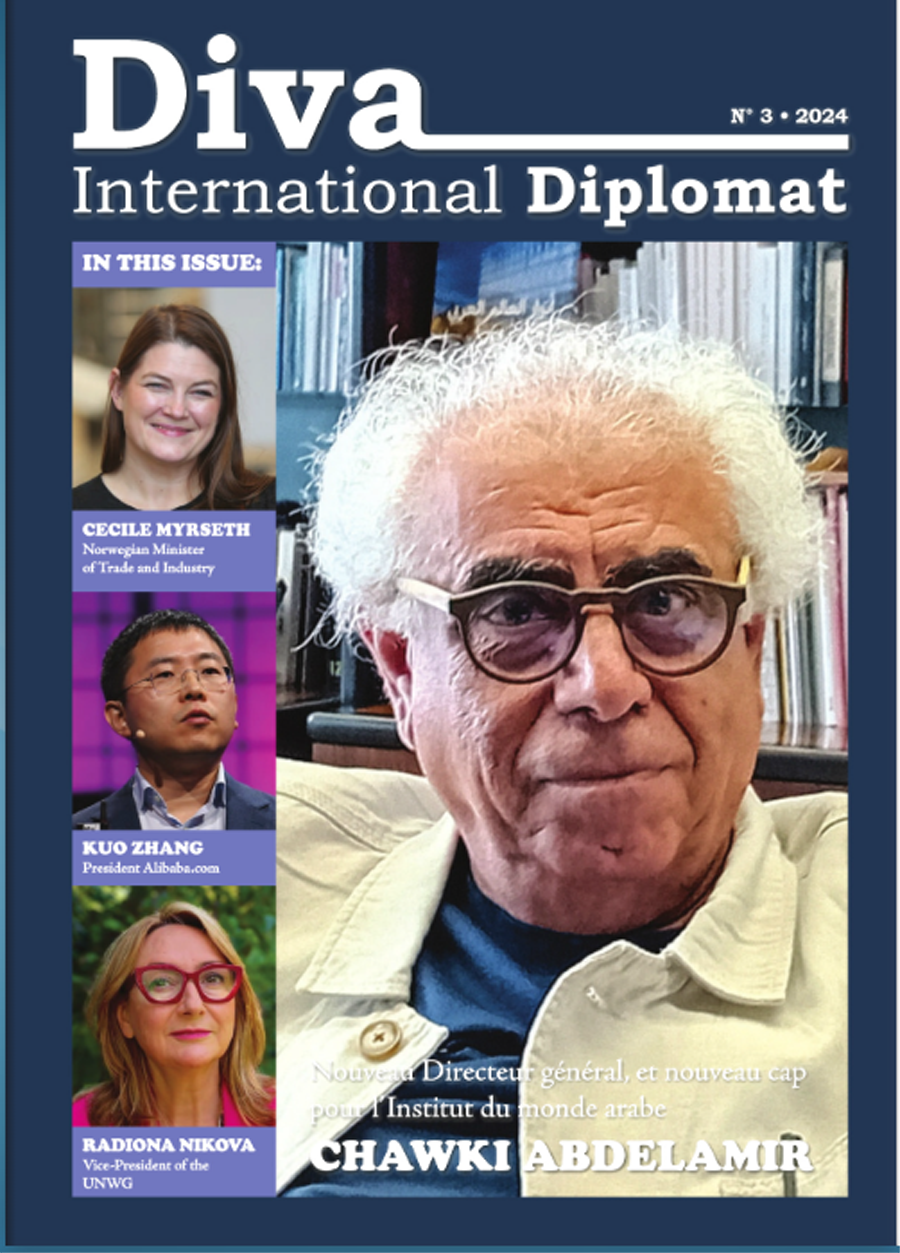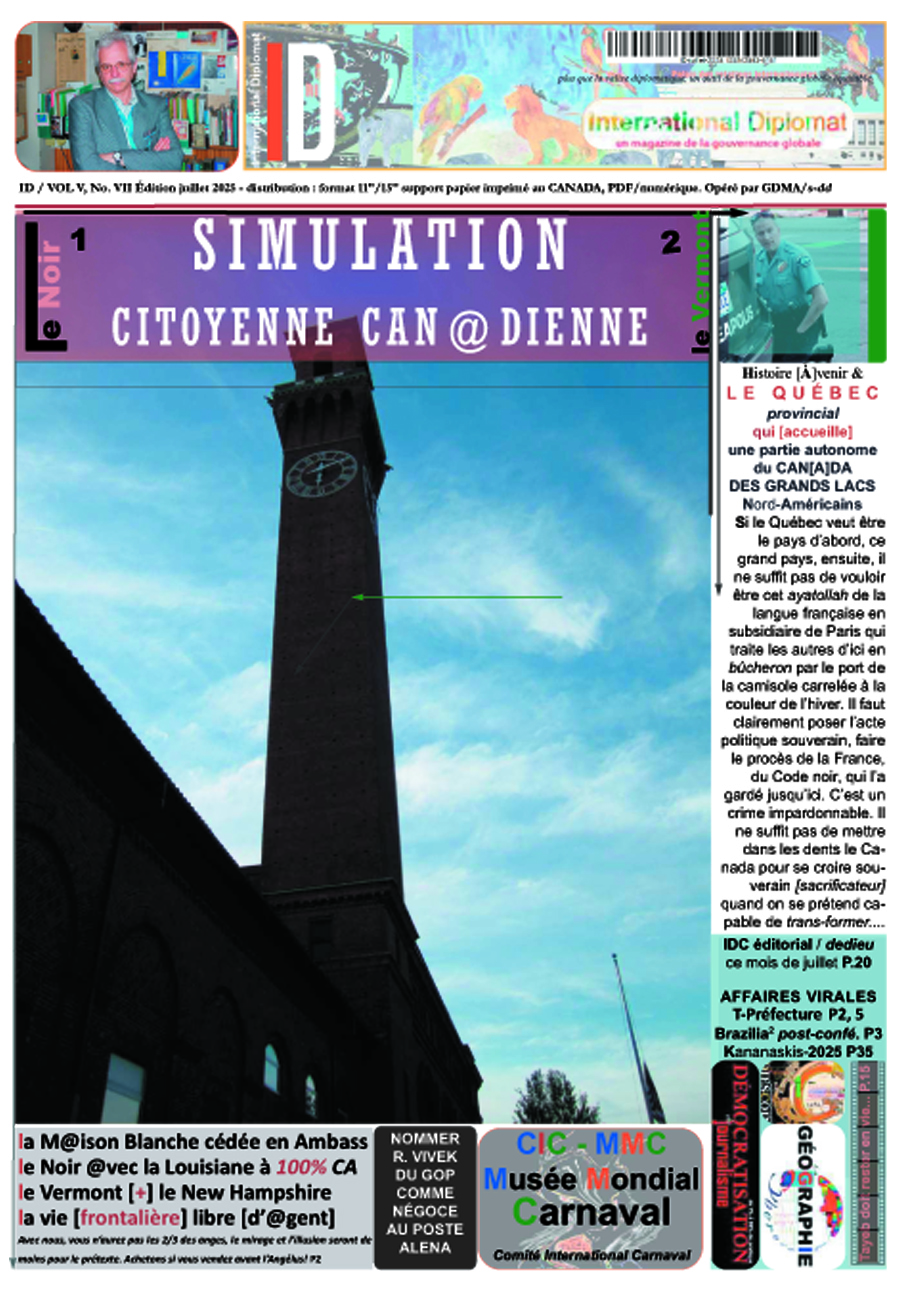Talking with Mr Ambassador is an enjoyable experience. Not only is he perhaps the ambassador with the longest experience in diplomacy among all the diplomats in Geneva, but one could also consider him a living history book of the contemporary world. What Mr Ambassador does not know about international relations, conflicts and disarmament from 1957 to the present is not worth knowing! However, this does not mean that he has an easy job defending Arab interests in the different international organizations in Geneva, in addition to being the coordinator of the Arab regional group.
Q: Mr Ambassador, what is your background?
I would say that I am a career diplomat. I started back in 1957. I obtained my first degree in political science, and carried out research on international organizations, with a special emphasis on the Trusteeship of the United Nations and peace-keeping operations. During my career, I have worked with the Arab League, the Egyptian Ministry of Foreign Affairs; I have served in Vienna, New York and Geneva, and I have also worked in the United Nations Secretariat twice — once in Disarmament, and the other time as the Regional Director for the Arab Countries in the United Nations Development Programme. I can claim to have acquired some expertise in collective security and disarmament, in economic development and human rights.
I also served as Vice-Minister of Foreign Affairs dealing with a number of matters, such as partnership between the European Union and Egypt. In the 1990s, I was involved in a number of domestic matters, mainly economic, in particular during the reforms of Egypt, which were conceived as the most important matter at that time. Already from 1983 to 1987 I had served as the Egyptian Ambassador in Geneva.
This is a little of what I have accomplished in my career before returning to Geneva as the Permanent Observer for the Arab League, a position I have held for a little more than ten years now.
Q: As Permanent Observer of the League of Arab States, could you tell us a little more about this organization and the work you do?
I mainly do two things. First, I am the Permanent Representative of the League of Arab States to the United Nations and other international organizations. This means that I am representing the Arab League in all meetings and consultations at the UN and in the other organizations. This is my first « job ». Then, I’m also part of the co-ordination machinery for the Arab group here. I am not the leader, but I’m a kind of mentor, institutional memory, a good reminder and a very friendly adviser. It is a real diplomatic job.
Luckily enough, I have good relations with all of my colleagues here. I have never had any problems with them, despite the fact that we have had some very critical issues to deal with. There have been certain moments of real tension. The Arab States are very diverse, and the issues that we are advocating need tremendous effort to be accepted by the international community.
Q: Can you give us some examples?
The Palestinian question, for instance, is one. Or some of the issues in the human rights domain, or even in UNCTAD. I’m not talking about the World Trade Organization because that’s another forum and, due to the opposition of two member countries in the WTO, the Arab League has not been able to become an observer. Our application for observer status has been blocked for a number of years now/
Q: The Arab States are very diverse. Some have small populations and great wealth. Others are the opposite — rich in population and relatively poor. How do you reconcile the different point of view?
If you consider the population of the Arab world, we are about 312 million people. Egypt alone has more than 76 million. This means that something between one-quarter and one-fifth of all Arab people are Egyptians.
I need to elaborate. We are talking about national sovereign States; we are not talking about a bloc. It is a group; it is not an ideological one. It’s a group based on many elements: not only national interest, but also culture, history and what they aspire to be in the future. I do not like to single out history – although history is a good indicator – but I prefer to use other tools.
Despite discrepancies in wealth, in size, in population, the Arab States definitely all belong to some sort of a common culture, a common heritage, and their security is closely connected with whether it’s on the regional or the international scale and, above all, in their communal interest.
First, regional integration is a good thing for indulgence factors; it’s a good protection against external factors in a globalized world. It’s a good shield that will protect them and give them some weight in their fight to have a better position on the map on the world – – both economically, socially, scientifically or educationally. I’m not talking about military power, nor about force; I’m talking about national power.
Q: Do you think that the Arabs have been singled out in the war on terrorism?
Terrorism is another problem. There is some kind of trend in the world saying that terrorism is an Arab thing; terrorism is Islam. If you look closely at the Arab countries, you will see that they are themselves the victims of terrorism. They are not the producers of terrorism. Somehow, certain accusations and certain campaigns have attempted to identify terrorism with Arabs and Islam, but for us, as good Muslims, you should be tolerant and peaceful. If you want to use Islam for other purposes, then that is something different. And then it’s neither Islam nor Arab.
Look, for instance, at the Arab League. A few years ago, in 1999, the Ministers of Interior and the Ministers of Justice got together and reached agreement among themselves against terrorism. They even went so far as to define terrorism, something that nobody else has dared to do until this day. This agreement has been published in a document. Nobody paid any attention to it! And this is a question that I have been unable to explain to myself. However, the fact is that there exists a document signed by all the Arab countries against terrorism — even before 9/11. But, you might remember that, at that time, whenever you talked about terrorism, many countries in the Western hemisphere considered this is to be an internal problem, on the grounds that you are against democracy if you talk about terrorism. Since 9/11 the whole tone has changed.
Of course, one of the problems which we are faced with is Palestine. On this we really have a case which should be respected and approved by the international community. Unless you actually give the Palestinians a State to live in in peace, alongside the Israeli State — which we recognize within a certain boundary and to be viable — the whole region will continue to be faced with a great deal of turbulence.
We should also remember this when we are talking about other problems. Why are you talking about this problem and denying us these rights? Unless the man in the street has the feeling that he is being treated in the same way as other human beings around the world, it will cause disturbance, instability.
This is one of the questions that really belong to our region. It has to be solved as soon as possible; if not, you are creating the circumstances for more violence and the disrespect of many principles. The result will be that we will continue to experience some sort of chaos.
Q: When we look at what is happening today in the Arab world, we may be tempted to think that we are witnessing a kind of Arab Renaissance.
What we are witnessing, if you remember « States of Development » by Matthew Lockwood, is take off. This is exactly what is happening in the Emirates and the Gulf countries in general. Seeing this happening means organization; it means development of research and education. What is more important is the human being. In Dubai, in Qatar, in Bahrain, in Saudi Arabia you can see what I call « yuppies ». We have our own yuppies, our young generation, well educated, good managers, producing things with the latest management technology in the world and they are comfortable with themselves. This is really promising and this shows openness to different cultures, to different systems, but it is still based on the Arabic original. They take the best of two worlds, and mix it to their own liking. This is the reason why it’s really promising and it sends a strong message. Countries like Egypt, Algeria and Tunisia, etc., will feel happier if this model spreads throughout the region.
Q: In other words, you are back on the scene?
Yes, we want to have our share of the benefits of globalization, but in order to benefit from it we need to invest heavily in education. The population of the region is young. We have 15% of unemployment among the young, whereas, according to the ILO, the average in other regions is 7%. We are still having this dialogue to decide if we should be traditionalist or modernists. We still have a long way to go. Once you try to impose something it is counterproductive.
Q: What do you, as the representative of the League of Arab States in Geneva, see as the main challenges here?
All subjects here are really challenging! What is Geneva? It is a pleasant city with a beautiful lake. On the surface it seems a very nice and quiet place, but once you establish yourself here and become involved in serious work … you will never have a minute to yourself! This is the real challenge every morning! Here, you have a range of organizations and you could compare them to the central nervous system of the human body. You have trade, human rights, health, refugees, etc.
Every day, each of these organizations affects one part of your body. Unless you are alert, you will feel frustrated because every morning you have to set your own list of priorities. But you are not the only one who is setting the priorities. It is also the instructions you receive from headquarters, and then comes your own interest and your capacity.
In New York it’s not the same. In New York there is one organization, and if you go to the UN Delegate’s Lounge you meet everybody. Here it’s a mixture of bi- and multilateral diplomacy.
In New York it is easy, but here you have to search and work hard. Each organization has its own mafia and you have to find out who is doing what. In New York it’s all in one building. Here, people do not go to an organization unless they have business there and, once they have finished that meeting, they hurry off elsewhere. Geneva is a hard place to work, but still it’s an excellent school for diplomats. If you want to train a good diplomat, you had better give him/her a post here in Geneva.
Q: On a personal note, what do you consider as your main achievements here in Geneva?
First, I try to go deep into my subjects. The second one, as a mentor or co-ordinating partner of the Arab group, I think I have succeeded in gaining their confidence. I have a very good relationship with all of them, and we also have our private little talks as frequently as you can imagine.





